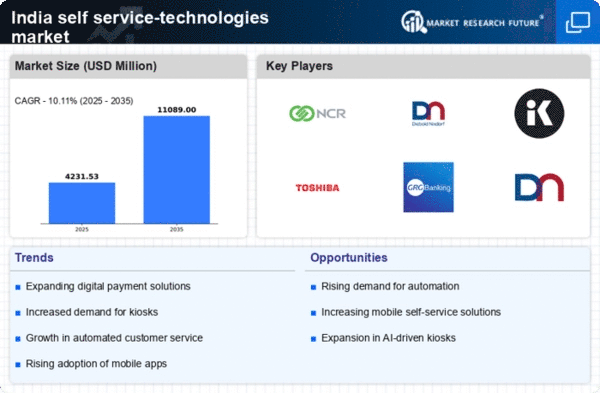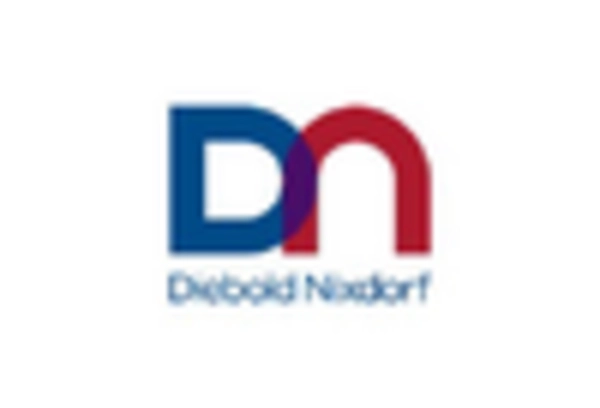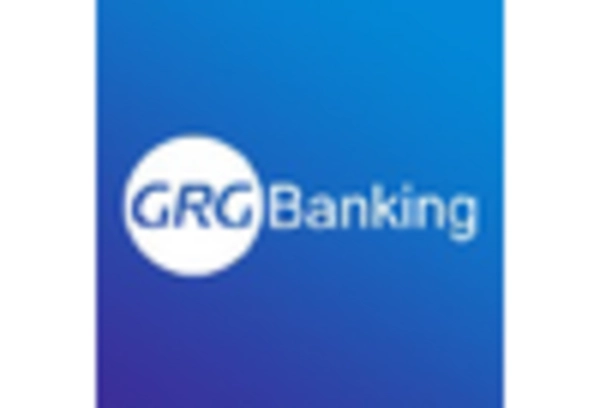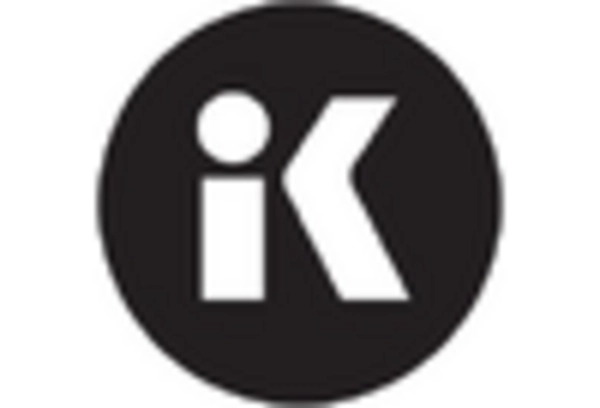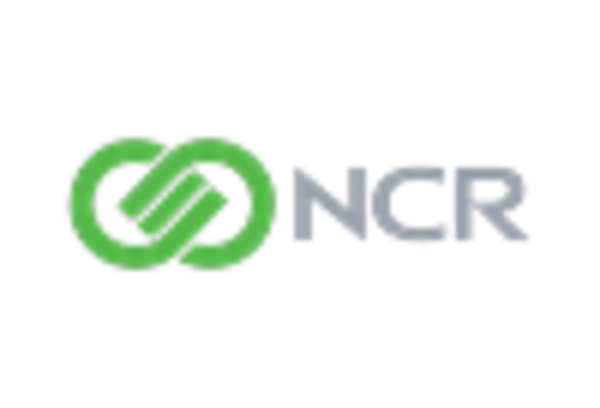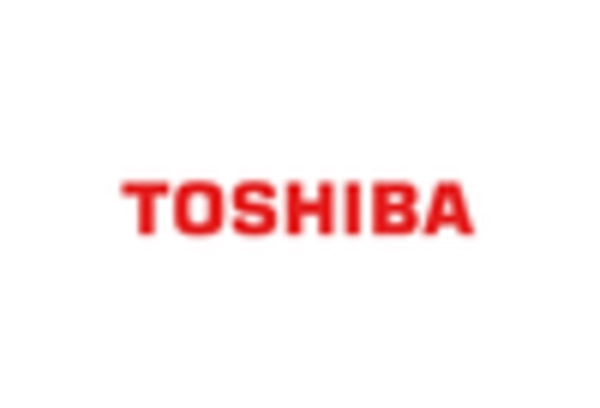Increased Focus on Customer Experience
Enhancing customer experience remains a pivotal driver for the self service-technologies market. In India, businesses are increasingly recognizing the importance of providing seamless and efficient service to retain customers. A recent survey indicated that 65% of consumers are more likely to engage with brands that offer self-service options. This trend is prompting companies to invest in advanced self-service technologies, such as interactive kiosks and mobile applications, to meet customer expectations. By prioritizing customer experience, organizations are not only improving satisfaction but also driving operational efficiency. Consequently, the self service-technologies market is likely to expand as businesses strive to create more engaging and user-friendly service environments.
Rising Demand for Contactless Solutions
The self service-technologies market is experiencing a notable surge in demand for contactless solutions, particularly in the wake of evolving consumer preferences. In India, the shift towards contactless transactions is driven by the need for convenience and safety. According to recent data, approximately 70% of consumers prefer contactless payment methods, which has led to an increase in the deployment of self-service kiosks and mobile applications. This trend is likely to continue as businesses seek to enhance customer experiences while minimizing physical interactions. The self service-technologies market is thus positioned to benefit from this growing inclination towards contactless solutions, as organizations invest in technology that aligns with consumer expectations.
Technological Advancements in Automation
Technological advancements in automation are playing a crucial role in shaping the self service-technologies market. In India, innovations such as artificial intelligence and machine learning are being integrated into self-service solutions, enhancing their functionality and user experience. For example, AI-driven chatbots are increasingly being utilized in customer service applications, allowing for 24/7 support and reducing wait times. This integration of advanced technologies is expected to attract more businesses to adopt self-service solutions, as they seek to improve efficiency and reduce operational costs. The self service-technologies market is thus likely to witness significant growth as automation continues to evolve and reshape service delivery.
Growing Urbanization and Consumer Expectations
The rapid pace of urbanization in India is significantly impacting the self service-technologies market. As urban populations grow, so do consumer expectations for quick and efficient service. Urban consumers are increasingly seeking self-service options that provide convenience and speed, leading to a rise in the deployment of self-service kiosks in retail, banking, and hospitality sectors. Data suggests that urban areas are witnessing a 40% increase in the installation of self-service technologies to cater to this demand. This trend indicates that the self service-technologies market is likely to expand as businesses adapt to the changing landscape and strive to meet the needs of a more demanding urban consumer base.
Government Initiatives Supporting Digitalization
Government initiatives aimed at promoting digitalization are significantly influencing the self service-technologies market. In India, programs such as Digital India are encouraging businesses to adopt self-service solutions to streamline operations and improve service delivery. The government has allocated substantial funds to enhance digital infrastructure, which is expected to boost the adoption of self-service technologies across various sectors. For instance, the implementation of e-governance initiatives has led to a rise in self-service kiosks in public services, facilitating easier access for citizens. This supportive regulatory environment is likely to propel the self service-technologies market forward, as more organizations recognize the benefits of digital transformation.


